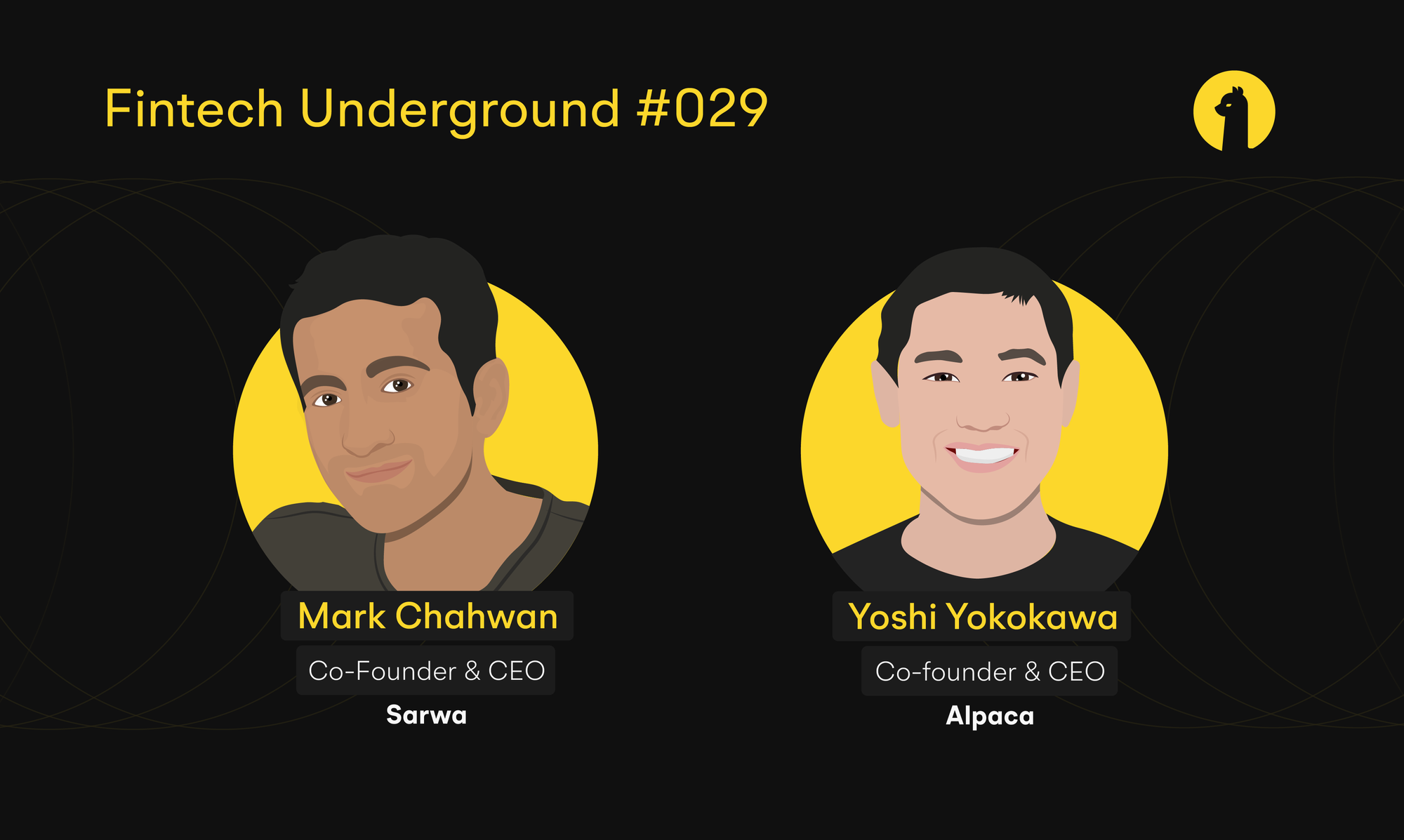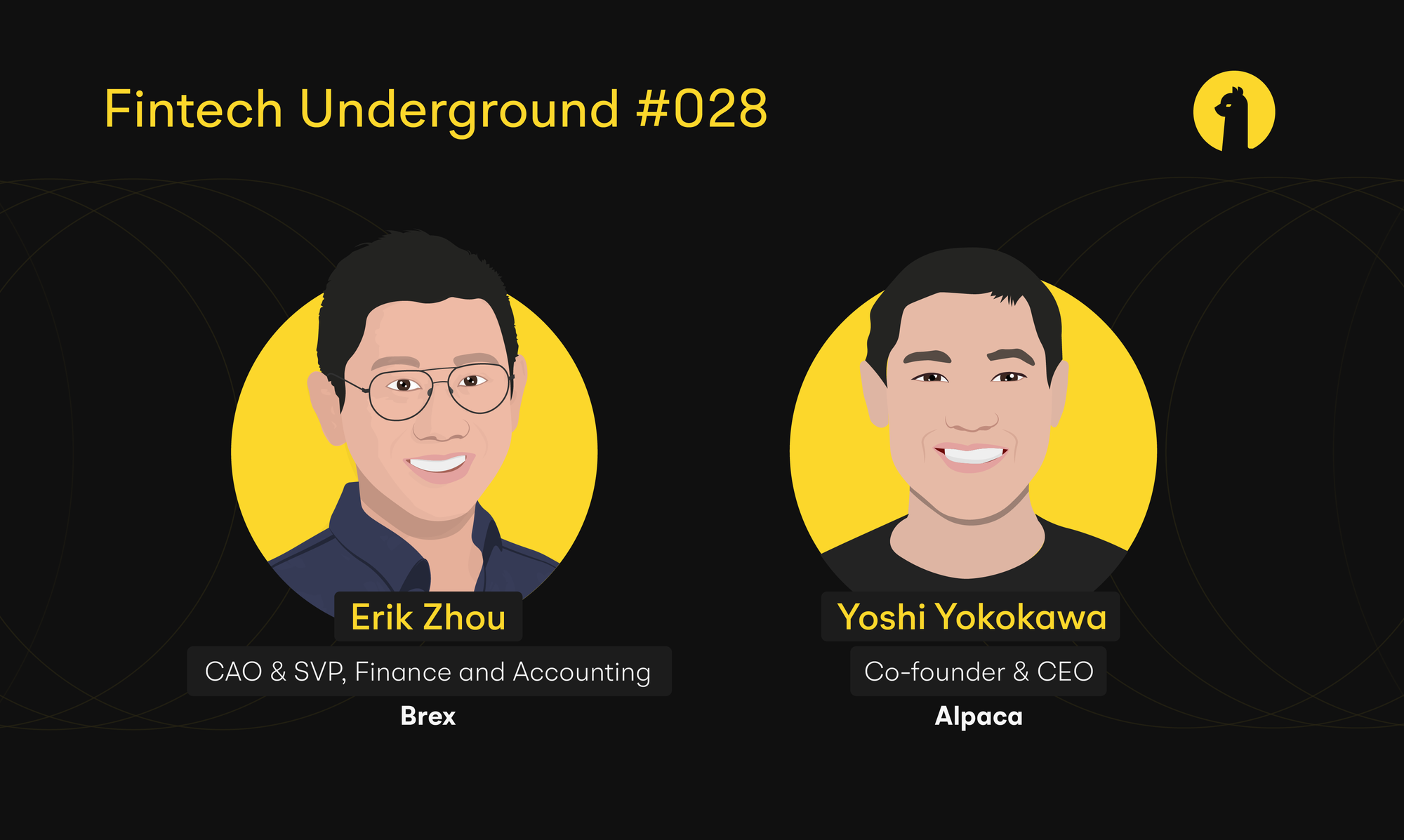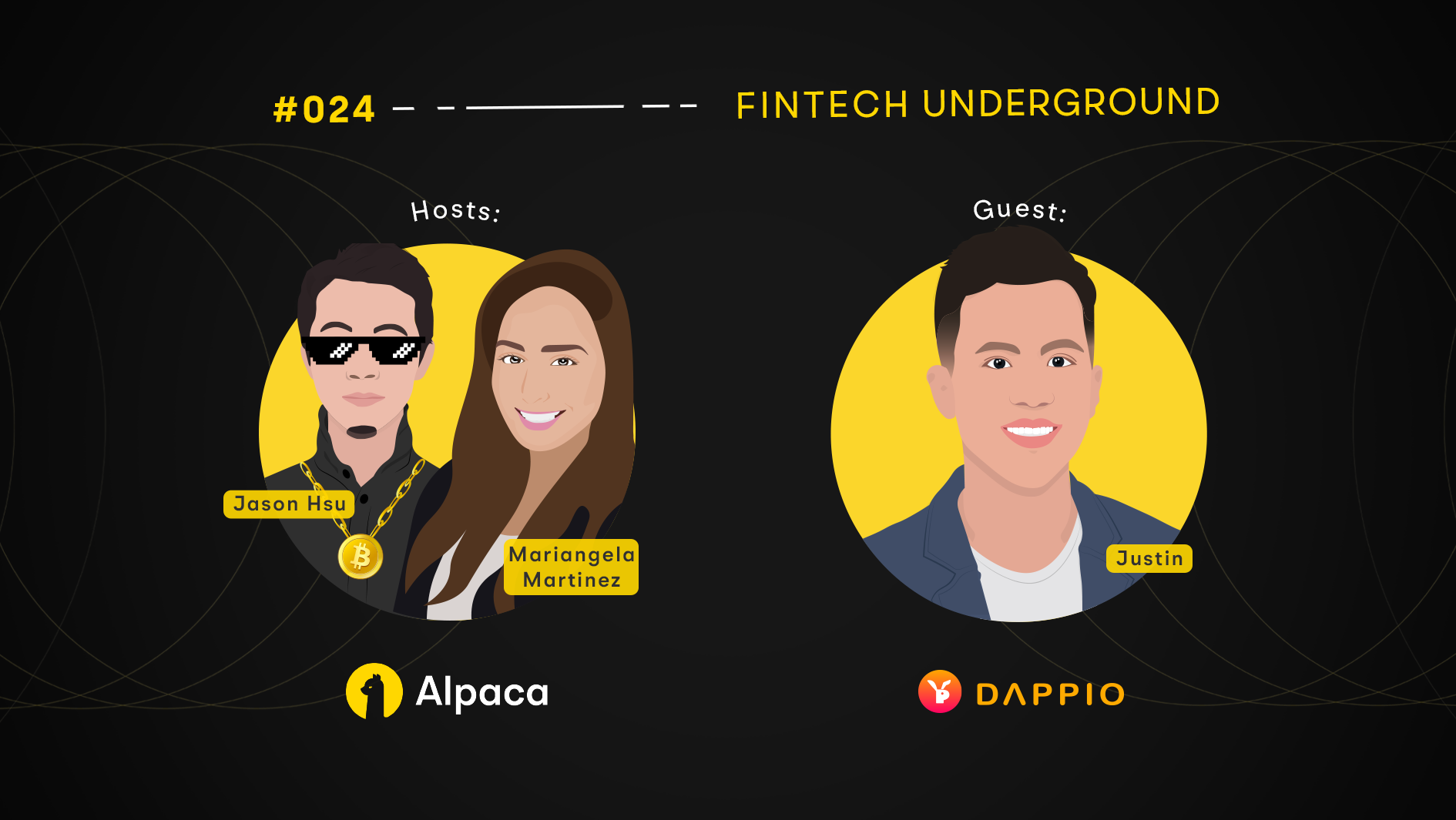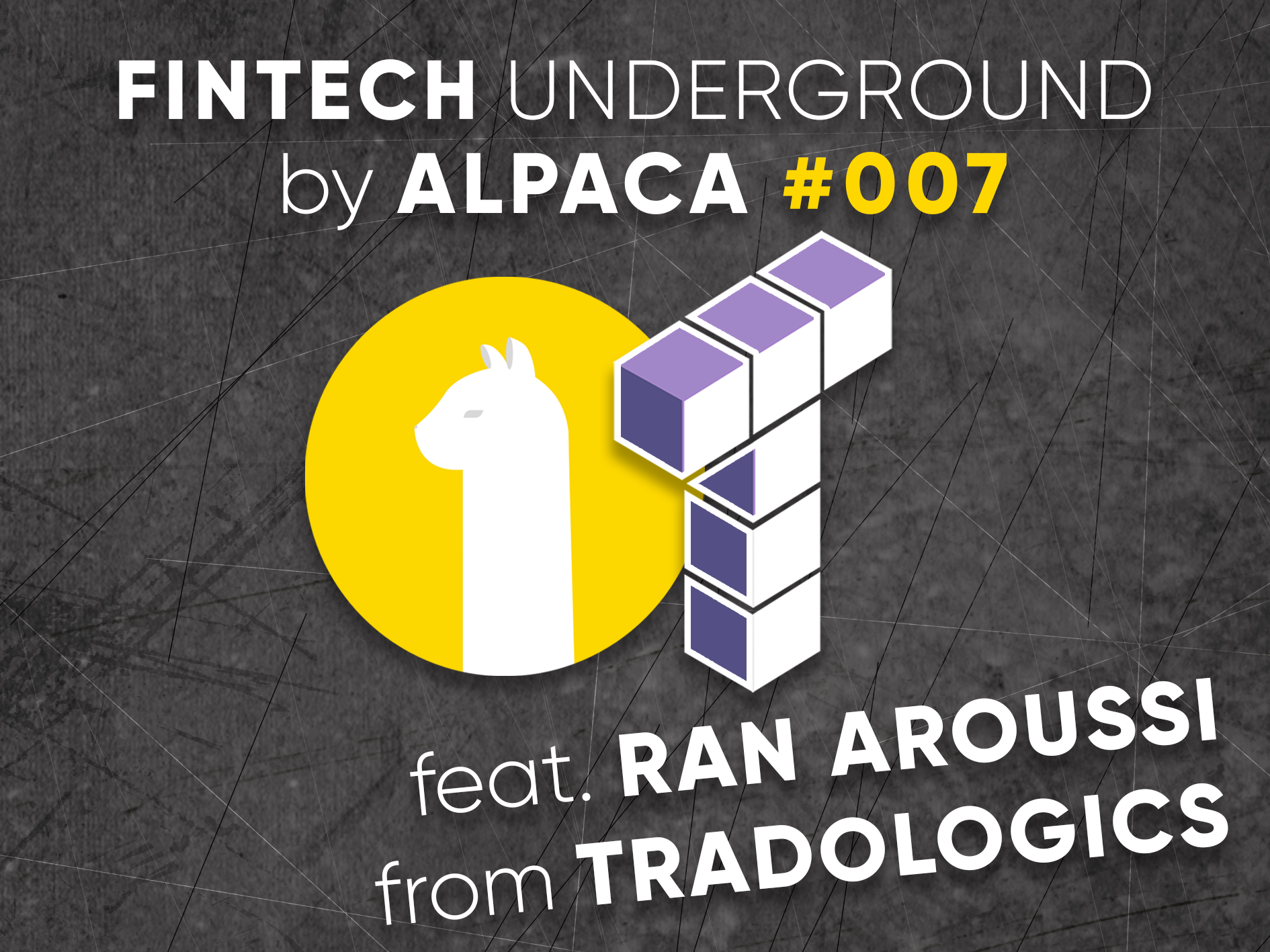
Any opinions expressed are opinions of the host and their guests. Alpaca Securities LLC does not recommend any specific investments or investment strategies.
Fintech Underground by Alpaca is a podcast devoted to all topics related to stock trading and APIs. From trading with algorithms or connecting apps or building out services, we aim to bring light to the different corners of Fintech.

TL;DR
On our seventh episode of Fintech Underground by Alpaca we interviewed Ran Aroussi. As the Founder of Tradologics, a cloud platform for programmatic trading, Ran discusses his background from the Ad Tech space to developing popular python libraries such as YFinance and QuantStats to starting Tradologics.
Summary
Beginning off in the Ad tech space, Ran Aroussi has had quite an impressive career. From working on the software side in Ad tech to developing the popular open-source python packages YFinance and QuantStats, Ran continues to show his versatility with Tradologics. As the founder of Tradologics, a cloud platform for programmatic trading, Ran discusses his experience from his first introduction to his field all the way to his realization of a need for an agnostic algorithmic trading platform. Towards the end, Ran explains how he believes the Fintech Industry is worth it due to the challenges it presents and the freedom to scale.
Find the full transcript below. To hear more CEO/Founders of the most interesting Fintech companies speak about their experience in the industry check out our other episodes below
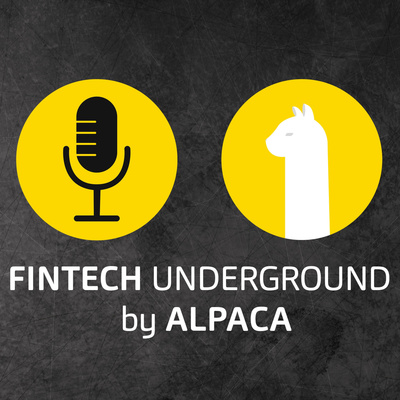
Full Transcript
Jason: Welcome to FinTech underground by Alpaca, a podcast devoted to stock trading API from trading, with algorithms to connecting apps, to building out services. Alpaca is built for developers and traders. And with that being said, let's get started. Hello everybody. Welcome back to Fintech Underground by Alpaca.
[00:00:17] In each episode, we aim to explore a different area within Fintech. Today. Our host Yoshi CEO and co-founder of Alpaca. We'll be talking with Ran, the founder of Tradologics, a cloud platform for programmatic trading. Offering access to over 20 brokers and exchanges Tradologics allows users to build test and run trading strategies in the programming language and framework of their choice without worrying about broker connectivity, data management, or infrastructure.
[00:00:44] So let's get started.
[00:00:45] Yoshi: Hey Ran, how are you? Nice meeting you. Welcome to FinTech Underground.
[00:00:49]Ran: Thank you for having me glad to be here.
[00:00:51] Yoshi: Yeah, it's great honor to have you, you know, Ran has been working on the algo trading space. And a lot of experience, but like, I like to firstly ask you a quick sentence on what do you do?
[00:01:01] Ran: What do I do currently? I recently founded a company called Tradologics, and we are developing a cloud infrastructure platform for traders. For algorithmic traders who want to trade on a number of brokers and without worrying about infrastructure or a broker connectivity or data handling.
[00:01:20] So really we just let the traders focus on what it is that they need to focus which is generating trading ideas, trading signals, and yeah - get up and running as fast as possible.
[00:01:30] Yoshi: Pretty exciting time for algorithmic trading in general and a lot of you know, market activity. How have you been experiencing this hype from users all over the world?
[00:01:40] Ran: That's actually a very interesting question. Currently when we're recording this, we're still in beta, so we don't have a lot of users on the platform. And surprisingly, we haven't seen any kind of spike in activity, shorting or anything like that, mainly because most of the people that are using our platform are more of a higher tier retail traders and professional traders.
[00:02:04] So they didn't get swept in with all the hypes. We did see some shift towards a crypto, but with regards to all that GameStop a thing, we haven't noticed any effect.
[00:02:16] Yoshi: Great. Great. And then before Tradologics you were also working on the Panda trading systems as well. I mean, this has been a pretty big platform as well.
[00:02:26] Right? Could you share about how your journey went from there to starting your Tradologics?
[00:02:33] Ran: [00:02:33] Well, I think that maybe I can start with a little bit earlier. I mean, my background, most of my adult life I was working in the Atech space for many years and helped develop exchanges for online media and work with a lot of users at scale.
[00:02:46] So that kind of was a good place, a good learning curve to understand how systems should work at scale. And when I switched my focus to the financial markets, probably about eight years ago, I was expecting -- you know, not coming from the industry -- I was expecting to see everyone's driving a spaceship.
[00:03:06] But in fact, I actually found that players in this field are actually driving 30 old cars. And it was very, very surprising to me. In my personal trading, my approach is completely technical in the sense of technological approach, not in the sense of technical and indicators.
[00:03:26]So I'm not into fundamentals or anything like that. And I don't really care what I traded as long as it moves. And when I got into this and started doing trading algorithmically, I realized that I’mbeing forced to create my own stack, my own environment, in order to trade with, because you know, it was kind of tricky to connect with brokers with API or anything like that.
[00:03:48] And it was kind of tricky to find good quality free data online, but that's kind of what drove me to creating my own solution. And every time that I've created something for my own use I've then released it as an open source library. And I've also contributed to a few projects on GitHub.
[00:04:08]But the main libraries that I've released that kind of caught on fire were the Yfinance library for downloading data from Yahoo and the data store library that I have, PyStore and QuantStats for generating tearsheets for traders. So that's kind of the first step, maybe that got me both exposed and exposure to the whole algorithmic trading community.
[00:04:37] And obviously I wasn't the only one thinking that they's a massive need in the market for tools that would make the trader's life a whole lot easier because, and that’s what led me later on to come up with an idea to create this all-in-one platform that eliminates all the technical barriers and let you focus on what it is that you really want to do.
[00:05:05] So that's my journey, my background… I'm a programmer and have been for 30 years now. And I'm always into solving puzzles,solving things. And coming from a very techy-techy world –although at the very end we're just serving banner ads, it is a, very high techie world –I want it to have that same level of technological sophistication for myself first and foremost, and also to to people around the world.
[00:05:38] Yoshi: [00:05:38] That's great. And also as you mentioned your open source libraries, Yfinance, PyStore, and QuantStats there are a bunch of the contributions that you've been doing and focusing on the community.
[00:05:50] I think that the community aspect has become rather bigger these days in the trading space as well. Like looking at the applications that are coming out, what do you think about the relationship and the importance of the community in this specifically algorithmic trading world?
[00:06:06] Ran: Well, I think, I think that the sense of community to people who used to work in a very secretive sort of environment. When you have a good trading idea, you won't run and tell everyone about that. Soyou can feel lonely at times when working as a trader, so the community aspect, I think, really goes a long way into sharing ideas or being able to be anonymous in some cases and open up more freely about things.
[00:06:37]I think that communities benefits both brands and people. For brands, they enhance the brand loyalty and and recognition. For people... well, there are so many books you can read to find good trading ideas, so you go to communities and you start talking, or maybe making jokes on Reddit or whatever it may be, you eventually may come up with one good trading idea or one good trading idea "ignition", or just the tip of an idea to start working on something. And I think that is very important and we're seeing that this whole community effect now. We're seeing forums like Big Mike's and Elite Trader and what's going on with Reddit. Those people on Reddit... you know, the media likes to portray them as young gen Z, stupid people who invest in things based on posts on Reddit.
[00:07:36] I don't think that that's the case at all. I think that what we're seeing, there are people that either know what they're doing, or in such a phase in their life that why not go all in, you know? If you're young, maybe you still live with your parents. You don't need a lot, a lot of money to live off.
[00:07:55] That's exactly the time to go all in on a crazy idea. You won't do it when you're 40 and have kids and a mortgage. So that's exactly the time to run wild and see what happens. Maybe it works. Maybe you'll lose a few thousands of dollars. At that age it really doesn't matter. So I don't think that that they're stupid at all.
[00:08:15] I think that we're gonna see more and more of these things happening. And I think it's a good thing because they're in the market right now because of such low interest rates. There are really not a lot of options for people looking to have their money grow so that I think that we're gonna see and more of these people - and more and more of these people, sooner rather than later, we'll be looking to automate their strategies as well. So I think we're going to see less people lurking on forums all day and then running to Robinhood to click on buttons. I predict a lot more automation in this area.
[00:08:49] Yoshi: That's interesting. You mentioned about the Reddit and how the craziness was started. I feel the same because it just was the beginning of this whole thing, right? Like it's only in the English obviously. And then, market access from the rest of the world still has not been really established yet. Just imagine when that's opened up for all the 7.5 billion people, it is going to be crazy, but again, that's going to be getting automated into the actual algorithms that, you are basically helping to push forward.
[00:09:20] How was your journey for you as you come from the very heavy background of the software engineer, right? But when you started algo trading did you go from like manually investing in trading, look at the forums of those community inputs, or did you just go straight into the automated and now going to algorithmic trading.
[00:09:38] Ran: I went almost immediately to algorithmic trading. My idea was to find that the Holy grail and create that money-making machine and just go lie on the beach. So that was, that was the dream. But then you very quickly realize that that's not the case. It's is very time consuming and it's very hard to do to come up with a good trading idea and a good strategy that has good risk management and good money management.
[00:10:06] So it's not quite as easy, but when I switched my focus to the financial markets I was (falsely) fully confident. Because I come with a lot of tech experience, I could automate things and I had the automation part covered. I just needed to actually know what's going on in the market and I, so I relied heavily on communities and the education part of Quantopian.
[00:10:32] They had a very good education center. It was a good place to start. And I think that I've traded manually maybe for a month before realizing that this is just not for me. I don't have not the sentiment to sit in front of the screen and just wait for an opportunity, nor do I have the stomach to see a trade goes against me, even if deep down, I still have the convictions that I had when I first entered. So I just decided that it's best to have a computer do this for me. I don't want to, I don't want to see my P/L intraday. Let's, let's put it this way.
[00:11:12] Yoshi: That makes sense. And you also mentioned Quantopian so when you started it, like which one was the most impactful to your learning in this algorithmic trading . What was the experience that you remember the most vividly that you got help from the community?
[00:11:27] Ran: I'm mostly a forum lurker much more than a participator, I have to admit. But I used to go a lot into a big Mike's forum, which is called futures.io now. They had some good discussions. Obviously I read some books on trading and I started with athe very basics, like a moving average crossover strategy and yet another Bollinger Band strategy.
[00:11:50] So that's fine. As always, you need a place to start with. I then went through the documentation website and the whole education website that Quantopian had and participated in some of the discussions there. I also went to a workshop with Dr. Ernie Chan who wrote a few bestselling books about quantitative trading.
[00:12:17] It was like a five day workshop with a small group of people. And this really got me both the motivation and opened my eyes to the possibilities. I'm always looking to computerize and automate as much as possible. I'm also not using any sort of indicators in my trading at all.
[00:12:38] So I'm just trading purely based on price, volume and market behaviors. Things like that. So, maybe I shouldn't say that, but my strategies are actually extremely simple. And they work well.
[00:12:53] Yoshi: That's great. That's great. And, you know, just moving towards a little bit back to what you said earlier about coming from the advertisement industry and going into the financial services it was pretty interesting that it's being a very, very old ship operating, so in this industry, what were the exact things that made you feel that.
[00:13:15] Because like, I feel a lot of people who are in the finance industry obviously think that's normal. Right. But you know, us as well, like, coming from the tech side. This is really old or this is really bad.
[00:13:35]Ran: Definitely Excel. Microsoft Excel. It was when I saw this as the main tool at some of the hedge funds that I helped computerize. I was shocked by the fact that it's not only used for modeling, but for actual trading signals.
[00:13:52] And that sounded very inefficient to me because, coming from a very high-tech industry, as I mentioned, you have a program for everything that you do more than once. Every time you do something more than once, you write a program to automate it. And just the amount of manual work that went through day to day trading, and I'm not even talking about trading. You know, there are traders that work on gut hunches or reading fundamentals or whatever, and that's fine. But if your trading is based on a system – and many traders are using systems and rule-based trading – and you're doing that manually - I just don't understand it. I just couldn't figure out why, if you have such strict rules of when you should go in and trade and when, why not automate it?
[00:14:41] It blew my mind, the fact that they were using Excel spreadsheets as the main tool and they had to hack their way around with the charting software that they used, but then they needed computation to be done elsewhere. It was really a big mess of using many different vendors. So execution was done on the brokers and a risk manager was someone else at the company, and the market data came from another program and the trading signal generated by this program. It was like a spaghetti ball of mess that was amazing to me because you see all these movie and you see quants are doing very advanced stuff in statistics and math and things that I can't even read, you know, all these formulas that they have - and you expect that technology will follow along that same level of expertise. And it just didn't, it still doesn't.
[00:15:34] Yoshi: I think Tradologics is part of the efforts to basically resolve this whole spaghetti bowl, but why do you think it's the case in this industry that has been so.
[00:15:49] Like how it became the spaghetti bowl. Right? Like, did you think about that? Do you think about that at all when you really experienced that?
[00:15:56] Ran: Yeah. I have some theories. Obviously, I don't have that one right answer, but if you're coming, let's say that you work for a hedge fund and you used to do a lot of data cleaning. So the biggest problem in your mind would be a data. So when you go to create something, you may create a new and improved data company. You'll have a better model or a, or a different model or whatever, but that's what you're going to do. And if you're coming from any sorts of alpha exchange and you may create a marketplace. But being a trader, I just want to be able to focus on the trading logic.
[00:16:34] That's actually why I named the company that way. You know, if you wanted to start a blog 15 years ago, you had to be the writer, the developer, the designer, the web administrator. You have to be all those things. Right now you can just go to wix.com, wordpress.com and start writing. All those technical barriers... they're not there anymore. And you're left with having to be a good writer.
[00:16:59]And I wanted to take the same solution for training. If you have a good trading idea, and most of your trading ideas won't be good (that's just the way life is), so at least have a platform that lets you vet them and throw them into the garbage as quickly as possible.
[00:17:14] Just to be able to move on, to find that one good one, that you'll be able to move to live markets and start making money off of. So that was my main idea. Even though I personally can create my technology stack, it's something that I want to have to do.
[00:17:33] We're not in the nineties where everyone should have their own email server and file server at home. We now just pay $5-$10 a month to have that sorted out for us. So I think the same approach should be applied to trading.
[00:17:46] Yoshi: I guess, the trading world has been kind of lagging. Like I think the blog comparison was pretty easy to understand, but I think it seems like Shopify has been there but for trading. It's not there yet.
[00:18:00] Ran: Exactly. If you want to, if you want to start the shop online, you go to Shopify or at least start with Shopify or a similar platform. Later, if you really need something customizable that no one can offer you , then build something on your own, but yeah - why bother building a platform when that's not your business? You're in the business of selling gizmos online. So just focus on that. Same thing with trading, just focus on finding good trading signals, executing the trade, doing risk management.
[00:18:29] Don't focus on IT. That's really not where your time should be spent.
[00:18:34] Yoshi: That makes sense. And moving a little bit into your game, like, your personal experience obviously before this you spent a pretty long time working in a different industry as a professional engineer, but what was the moment or incident or anything that really triggered you to think, “Oh, I'm going to be a hundred percent moving into this trading from the advertisement space”. Because I think a lot of people are, outside of the financial services industry and trading world. But of course because everything is happening right now, more people are touching it.
[00:19:10] And getting interested in it, but how was it for you that triggered you? Okay, this is it. I'm going to move to this specific sector.
[00:19:19] Ran: I have a very non-satisfying answer for that. It's completely stupid. So for a while, I was getting tired of the ad tech space because anyone who's working ad tech knows that it at least feels like Google and Facebook are your landlords.
[00:19:34] And I was getting more and more tired of this whole thing that once every few months they changed their terms of service and your whole business needs to go through an overhaul, a remodeling. So I just kind of got tired, but actually looking at the financial and specifically trading yeah, it's, a very stupid answer.
[00:19:55] I was in bed for about two weeks with a bad back, and I just went through the YouTube rabbit hole. It was literally that just one video caught my eye. Can't even remember what it was. And then from that point forward, it was another video and another video.
[00:20:12] "Hey, this is interesting.", "Hey, I can program it.". So then I automatically thought "Okay, if this thing works, why not give it a try?". I was already doing exchanges for online media and arbitraging ads with real-time bidding. So to me, in my mind, this was very similar to how the financial market works. Later I discovered that it's not. Although they share some similarities it's not really the same thing. But it did give me enough confidence to at least go and try it out. And what we're seeing, by the way, is that a good portion of about 20% of our users are purely programmers.
[00:20:53] They're not coming with a financial background. So it's, they have a new toy to play with. And that's great. It's all about making this whole trading thing much more available and kind of democratizing this whole thing. Right now. If you want to trade programmatically, you have a very high barrier to entry and that's what we're trying to solve. Our waitlist is filled with people with a lot of financial background, but about 20% are programmers with no financial background. They're interested in the financial markets, and they have the technical skills to write code.
[00:21:30] They just don't have the systems-engineering technical skills, you know what I mean? So you can code a strategy, but you don't know how to code a system to do everything for you, including manage data and databases and servers and real-time data. So that's what we get sorted out for them.
[00:21:48] Yoshi: Yeah, no, I agree.
[00:21:49] I think that is the very difficult part because you can learn and pick up Python, but it's very different from setting up this here and there. You need to make sure that it doesn't fail and there's a system to recover all those things.
[00:22:02] That's a very different concept. And compared to building the strategies and also going even deeper into your personal side, you've been building several companies. Even before Tradologics, how did you choose this specific problem solving of Tradologics while there are many things that you could do within this trading . Because I think this is not your first company that you're doing.
[00:22:29] So I think you have a pretty good amount of experience running a company. What will be the business opportunity, I guess, how did you specifically pick this area, considering your experience and background successfully running the other types of businesses in the past.
[00:22:45] Ran: I would say it's passion for the subject matter.
[00:22:48] This is something that I actually wanted to see happening and the challenge. It is a great endeavor. It's not a small feat to do what we do here. And especially with the vision... we haven't yet unveiled the entire vision that we have for the company. But yeah, it all, it actually started with an idea.
[00:23:08]I have a trading library that I released in Python and I wanted to add functionality to it. I think that the blog post is still out there somewhere that I wanted to have it. I wanted to have capabilities for you to integrate with different data vendors and with different brokers.
[00:23:24] And the more I got into the ins and outs of how to build this, the more I realized that this could not just be something that I give you a piece of code for each installed. It's just, it's just too. Big of a thing for you to operate. There's a lot of moving parts in a system such as this and that kind of drew me into creating this as a service, and offering it as a platform that's like an AWS type platform, right?
[00:23:48] Many different products you can pick and choose. You can build your own customizable system. So we don't have a framework. We don't have a specific way of doing things. You don't have to use the entire platform. You don't even have to run your code on our machine. You can still use your machine if it makes you feel safe and still use us for execution and reporting and everything. We're completely agnostic to brokers, to languages, to frameworks, to markets. So we're really here to facilitate. And this is what I think the market is lacking - tools to build whatever it is that you want to do.
[00:24:24] Going back to the example.. if you want to build a website today, you have a lot of solutions. 15-20 years ago you didn't. I remember when I think the wordpress was called BBPress, if I'm not mistaken. And I actually contributed some code to that, to the code back in the day.
[00:24:41] Very little code. Yeah. I'm not taking credit for anything, maybe just a few lines, but I do remember this as, as a small project. Now the market is fully grown up and a lot of platforms spawn up out of realizing that there is a market for something like that. There is a desire for people to build websites.
[00:25:02]Even if they're not a company that needs a company website and even if you just want to talk about your trip or a one page to invite people to your wedding. It doesn't have to be a whole thing, you know. Using the same type of logic. I saw it as a great opportunity for creating a new segment in the market - a segment of tools for traders. Not just yet another trading platform or yet another marketplace or whatever.
[00:25:30] Just one cohesive ecosystem that essentially lets you do you, while taking care of everything in the backend.
[00:25:37] Yoshi:] I think it's really interesting to hear about your open source contributions. And that is not big enough, I guess,of a forum so you had to really create the whole service.
[00:25:51] But I think that was really like the market. So I think that was really, great. And like finally, the one last question that I always ask so with the consideration of those and like, you know, coming from a different industry is FinTech worth it for you, considering all the challenges and differences which you thought didn't exist, but found out, is it worth it?
[00:26:13] Ran: Financially remains to be seen, but yeah, it's very fulfilling. I love the challenges. I love the fact that, you know, at least in theory, as a trader, you can scale up just by having good money management and changing the number in your algorithmic code. So in that sense, the opportunities and the people that I got to meet and the challenges on a day-to-day basis - I love it. I enjoy it very much. So it was definitely worth making the leap from AdTech to FinTech. Yeah. Financially, as it relates to Tradologics, we're still a young company. Hopefully this will be a good bet too.
[00:26:54] Yoshi: Great. Thank you very much, Ran, for your time.
[00:26:57] Thank you for sharing all your experiences in your thought process again. Ran from Tradologics we are the FinTech Underground. Thank you very much for listening.
[00:27:07] Ran: Thank you.[00:27:07] Jason: I also wanted to thank all of our listeners for joining us today. On this episode of FinTech Underground by Alpaca as always check all of our past episodes on all major streaming platforms podcasts can be found. Thank you.
If you liked this episode of Fintech Underground by Alpaca make sure to check out our other episodes below

You can also follow Alpaca and our weekly updates on our LinkedIn and @AlpacaHQ on Twitter!
Brokerage services are provided by Alpaca Securities LLC ("Alpaca"), member FINRA/SIPC, a wholly-owned subsidiary of AlpacaDB, Inc. Technology and services are offered by AlpacaDB, Inc.

